
Coronavirus: what is Hong Kong doing to curb a potential fourth wave?
racking the new coronavirus has presented challenges to scientists and health authorities, but the technologies involved are maturing. In this last entry in a three-part series, the Post looks at how new methods are being enlisted in detecting future outbreaks in the face of a potential fourth wave of infections later this year.
After spending months on the back foot as wave after wave of Covid-19 infections hit the city, Hong Kong is now trying to get the drop on the virus.
With a potential fourth wave of cases looming on the horizon, the city’s government is currently exploring previously unused pandemic surveillance methods – such as rapid tests, technologically assisted contact tracing and even monitoring the virus in sewage – in an effort to better detect community outbreaks before they spiral out of control.
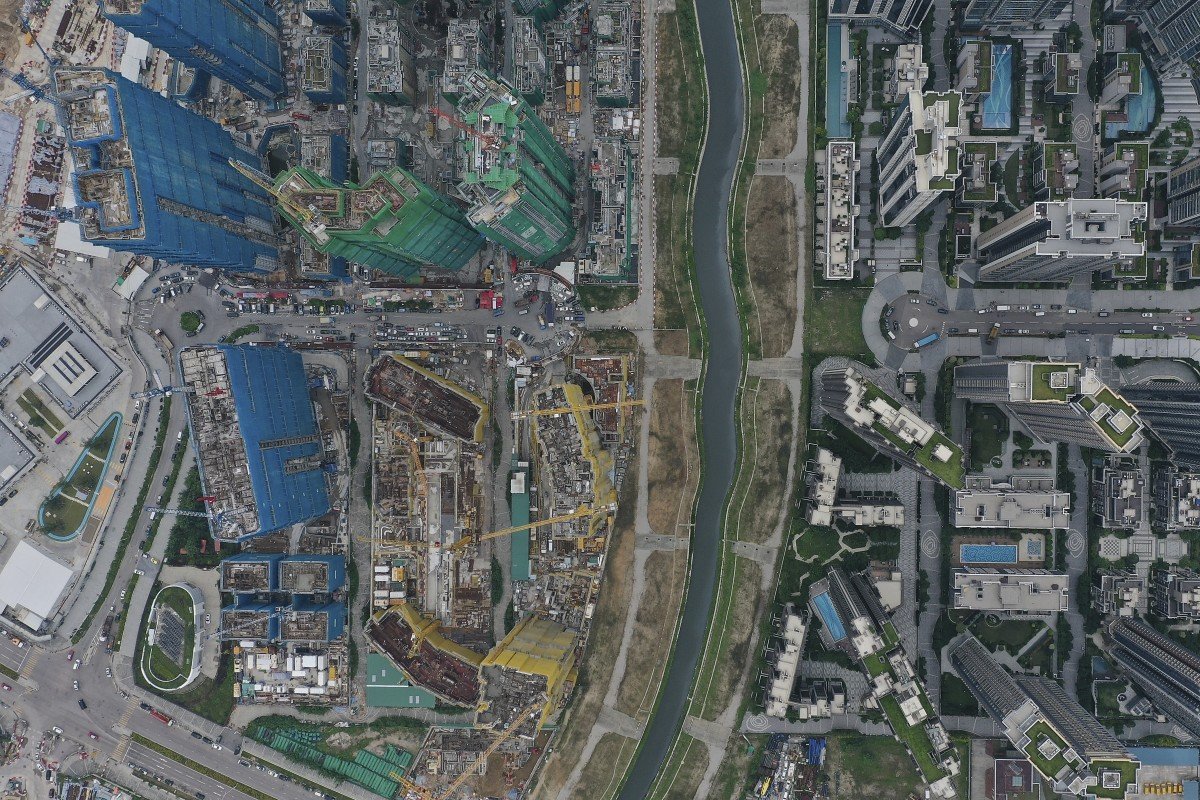
But even as the public begins to bristle after months of pandemic-related restrictions, health experts have warned that new technologies will not be a silver bullet, and that public vigilance in practising social distancing will remain key to fighting the coronavirus.
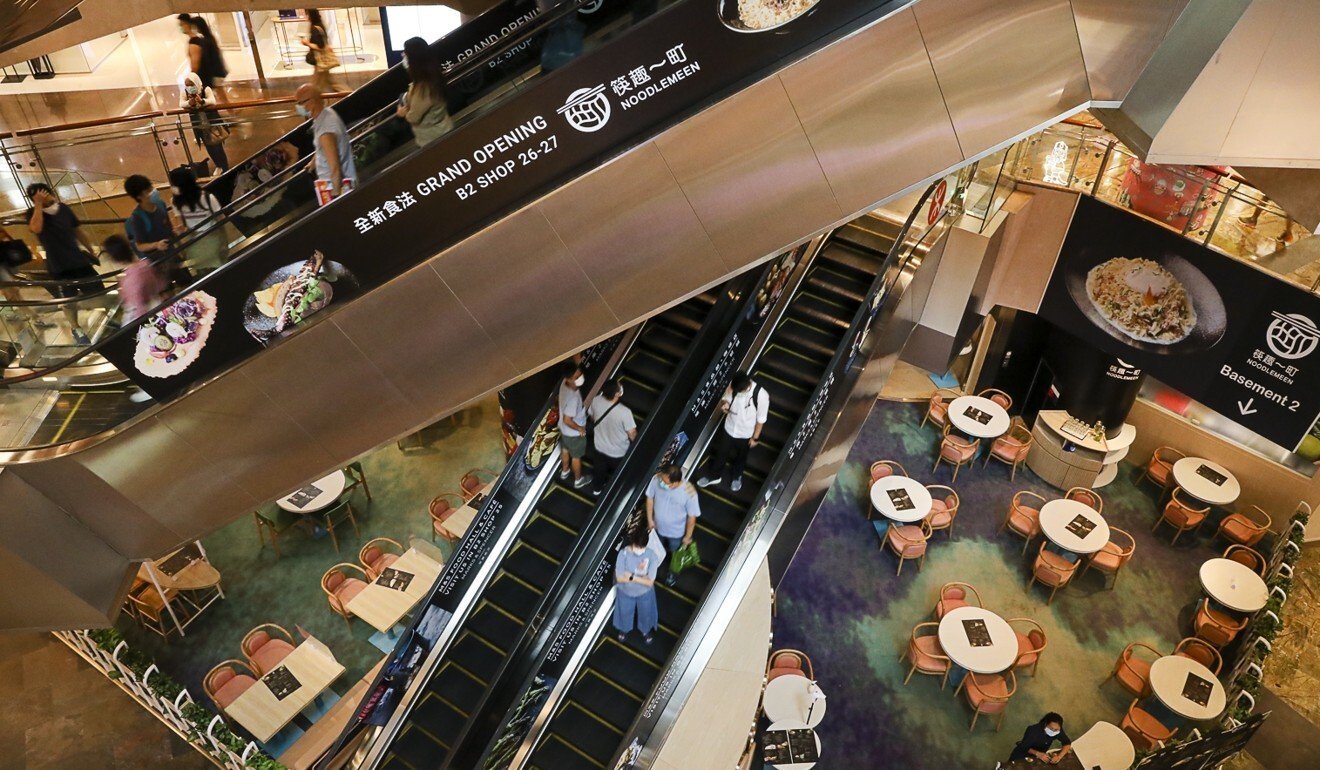
Hong Kong has long been tracing local transmissions by tracking close contacts of patients and testing high-risk groups, but now the government is considering gathering environmental evidence as well.
A system monitoring the level of Sars-CoV-2 – the virus that causes the disease Covid-19 – in sewage has been set up and tested by the University of Hong Kong (HKU) in collaboration with the government, including the Drainage Services Department and Environmental Protection Department.
“The experts have been identifying the particular drains and manholes, and streets and sewage collection points that are needed for the surveillance system to work,” said Professor Gabriel Leung, dean of HKU’s medical school and a government adviser on pandemic strategies. “It can help us spot an imminent outbreak, or limit the spread of an existing one by quickly testing residents in the nearby blocks and areas, and isolating them.”
He said details of studies carried out would be unveiled soon, and the system could be ready for operation “in weeks”.
Detection of the coronavirus in sewage is possible as the virus can remain in the stool of carriers even after it is no longer detected in respiratory or saliva samples, according to previous studies by Chinese University.
Zhang Tong, an HKU professor in environmental engineering who led the research, said testing for the coronavirus in sewage was an “effective surrogate approach in monitoring the outbreak of the virus in a community”, and called on the government to incorporate the method into the official Covid-19 surveillance tool kit.
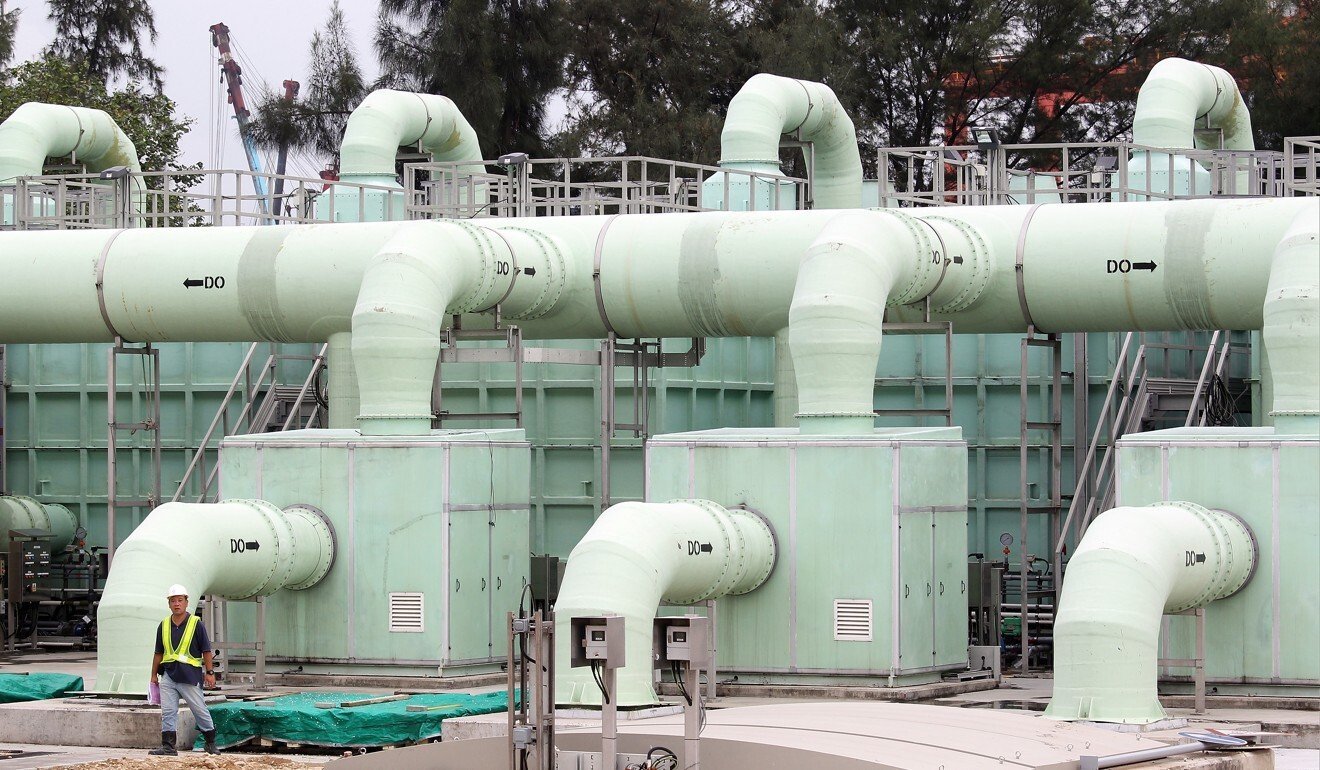
Leung suggested starting the sewage testing in more vulnerable districts, such as Wong Tai Sin, Tsz Wan Shan and Sham Shui Po – where a relatively high proportion of residents are elderly, and therefore at greater risk – and later expand it to cover the whole city.
A source familiar with policymaking said that a follow-up study was currently being done after the initial ones in July.
“It is possible to detect the virus from sewage, but more trials are needed to see whether it can be used for monitoring,” the source said.
Hong Kong is not the first to consider using sewage as a surveillance tool.
In the Netherlands, officials gather early signs of outbreaks by detecting the average level of the coronavirus in sewage. They recorded increasing numbers of confirmed cases since early September as the levels of virus in sewage rose over the same period of time.
Similar initiatives have been launched in Australia and the United States as well.
But the source said it would be more difficult to narrow down the source of the virus in Hong Kong.
“In such a dense place as Hong Kong, a public sewer gathers sewage from many locations, while in Britain or the Netherlands, a sewer might cover a few hundred households only,” the source said.
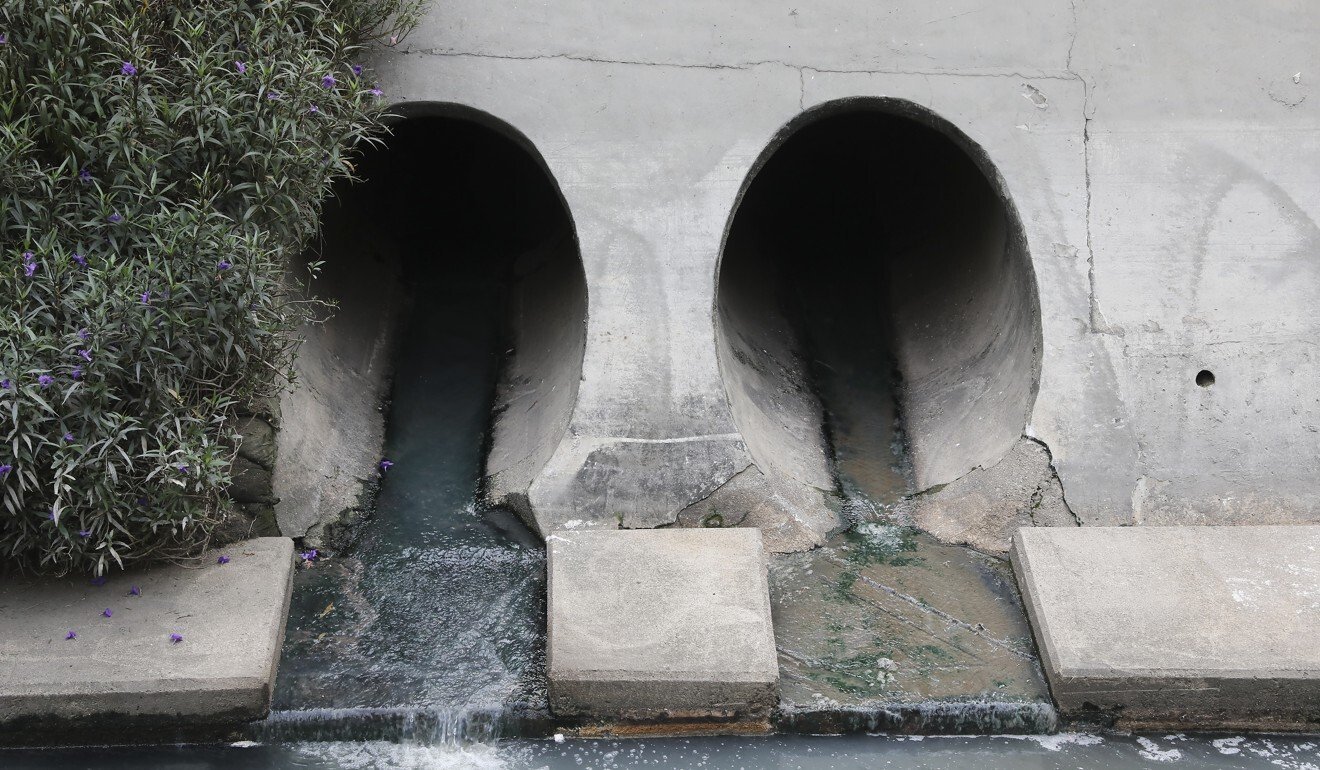
HKU epidemiologist Professor Benjamin Cowling, meanwhile, said he believed such surveillance might not be necessary, as the intensive testing done in the city would likely pick up on any outbreaks anyway.
The Environmental Protection Department confirmed to the Post that the study was ongoing.
The city, meanwhile, has been playing catch-up in applying technology to contact tracing. Frontline doctors had complained about how the city’s public health sector lacked an effective IT interface to share patients’ data among the Department of Health and public hospitals.
Last month, the administration said an internal information portal would be created to speed up contact tracing among departments by streamlining procedures to collect information.
The seemingly slow start in using tech to curb the virus’ spread was partly because of the unexpected nature of the current epidemic, according to Professor Terence Lau Lok-ting, director of innovation and technology development at Polytechnic University.
“Many people, including me, didn’t expect the impact of the epidemic could last that long and be that profound,” Lau said.
Looking forward, he said he hoped an accurate diagnostic test for Covid-19 could be made portable, removing the current need to send a specimen to a lab and wait for hours before a result came back.
Researchers globally are working around the clock to develop an accurate rapid test for Covid-19, a tool that would be helpful for resuming travel and economic recovery.
To confirm infections, Hong Kong relies on PCR tests, regarded as the most accurate and the gold standard of all diagnostic tests so far. However, the tests can cost anywhere from HK$300 (US$38) at a government laboratory to more than HK$1,000 at private lab, and require a wait of at least one to three hours.
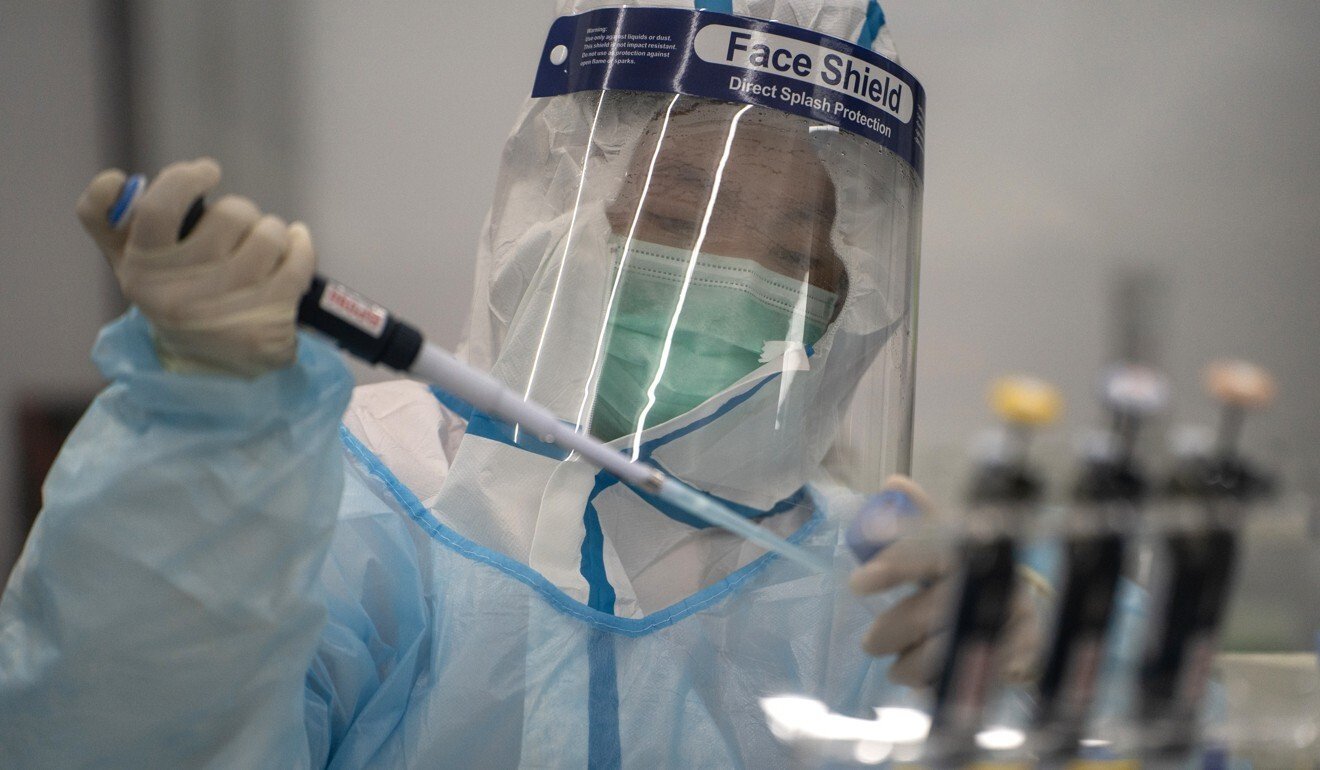
Health authorities are under pressure from the business sector to also adopt quicker tests as a tool to aid in establishing so-called travel bubbles with other nearby economies.
The cost of rapid tests can be as little as HK$2 but the reliability of some are in doubt.
Executive councillor Jeffrey Lam Kin-fung, who lobbied the government to also take advantage of rapid testing, said a quicker test could offer Hong Kong extra protection, as well as assurances to other places considering establishing travel bubbles with the city.
“Incoming arrivals could do a test before leaving the airport … Those leaving Hong Kong could also do such a test before boarding a flight,” he said.
The source familiar with policymaking said the government was exploring various testing technologies to see if they could supplement or substitute the current PCR test.
For example, rapid tests could be given to arrivals from low-risk areas, or to those under quarantine – on top of the standard PCR tests they receive at the beginning and towards the end of isolation – as a way to identify infected cases earlier.
Quicker testing methods being considered include antigen tests, which take about 15 minutes and return accurate positive results around 60 to 70 per cent of the time, and RT-LAMP tests, simplified nucleic acid tests that take about 30 to 45 minutes and return an accurate positive around 90 per cent of the time.
“We need to be very careful in applying these new technologies,” the source said. “Under the set-up of a travel bubble, how low or how high a level of sensitivity for a test could people accept?”
On the contact tracing front, the city’s Innovation and Technology Bureau has said a prototype of an exposure notification app was completed last month for proof-of-concept testing, and that targeted trades and venues would be invited for small-scale trials.
Innovation minister Alfred Sit Wing-hang had previously said that users of the app would need to scan specific QR codes displayed in places like restaurants or taxis to record their whereabouts. If a person who visited those places was confirmed to have the virus, other app users who had been to the same locations around the same time would be notified through the app of their potential exposure.
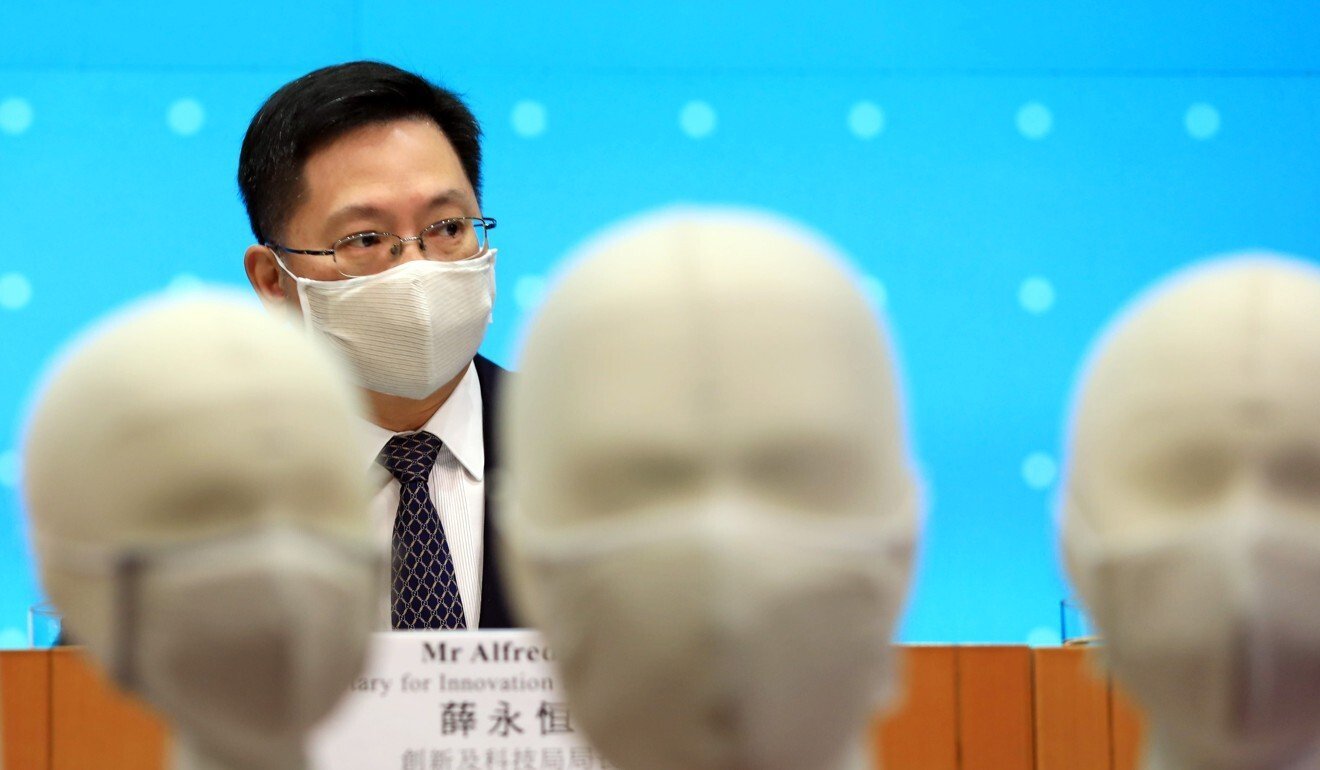
Several countries have deployed smartphone apps as part of their antivirus measures – for instance, TraceTogether in Singapore, COVIDSafe in Australia and NHS Covid-19 in Britain. All serve similar functions: namely, notifying users if they have recently come into contact with a person who tested positive for the coronavirus.
Dr Leung Chi-chiu, a specialist in respiratory medicine, said such an app would “help a bit in contact tracing”, but its usefulness would have its limits, as it “could not assess the [full] risk of exposure” with such a limited amount of information. And an app would only be effective if it were widely adopted and used, he added.
Lawmaker for the information technology sector Charles Mok said there was no strong evidence that an app would have a meaningful impact on pandemic control, and questioned whether it would be widely adopted among some high-risk groups, such as the elderly.
“Even if they have a smartphone, they might not know how to install the app … or the phone might be too old to support the use of such an app,” he said.
Professor Keiji Fukuda, head of HKU’s school of public health, said the issue for Hong Kong was not whether it was falling behind in any technologies, but rather whether it was using a group of measures that were effective, sustainable and acceptable to the public.
Indeed, the public does appear to be chafing at social distancing after months of disruptions to daily life. Since the start of September, around 170 restaurants in the city have been prosecuted for violating social-distancing rules, official figures show, and some customers in pubs have been fined for not wearing masks or exceeding the cap on diners per table.
But, according to Fukuda, such restrictions will continue to be necessary.
“In reality, some technologies may lessen the need for some measures, but we are still going to need a combination of public support and participation in measures such as social distancing, and good decisions from the government about when and how to relax or stand up such prevention and control measures,” Fukuda said.
“There is no technology that will provide a silver bullet.”











